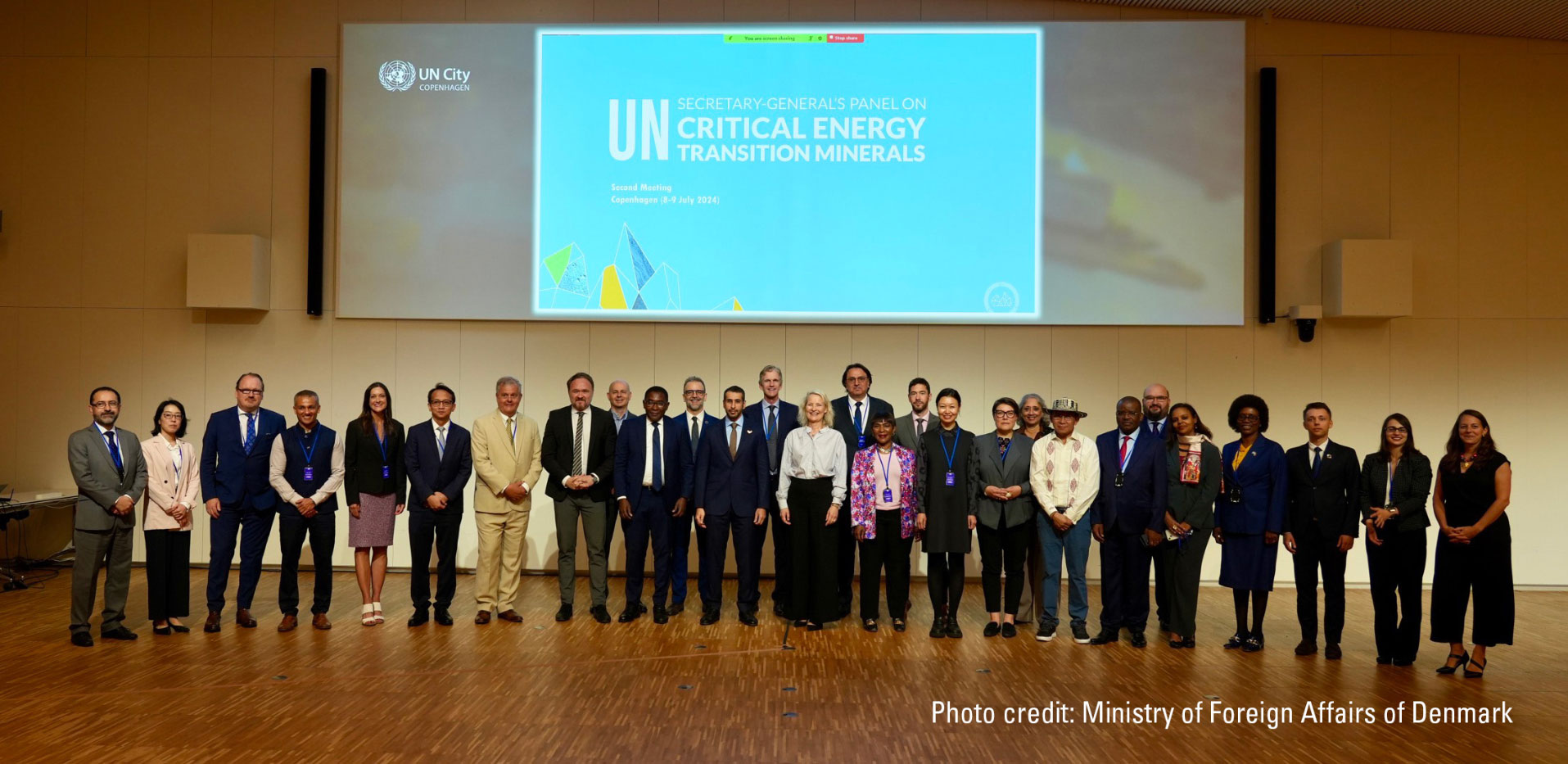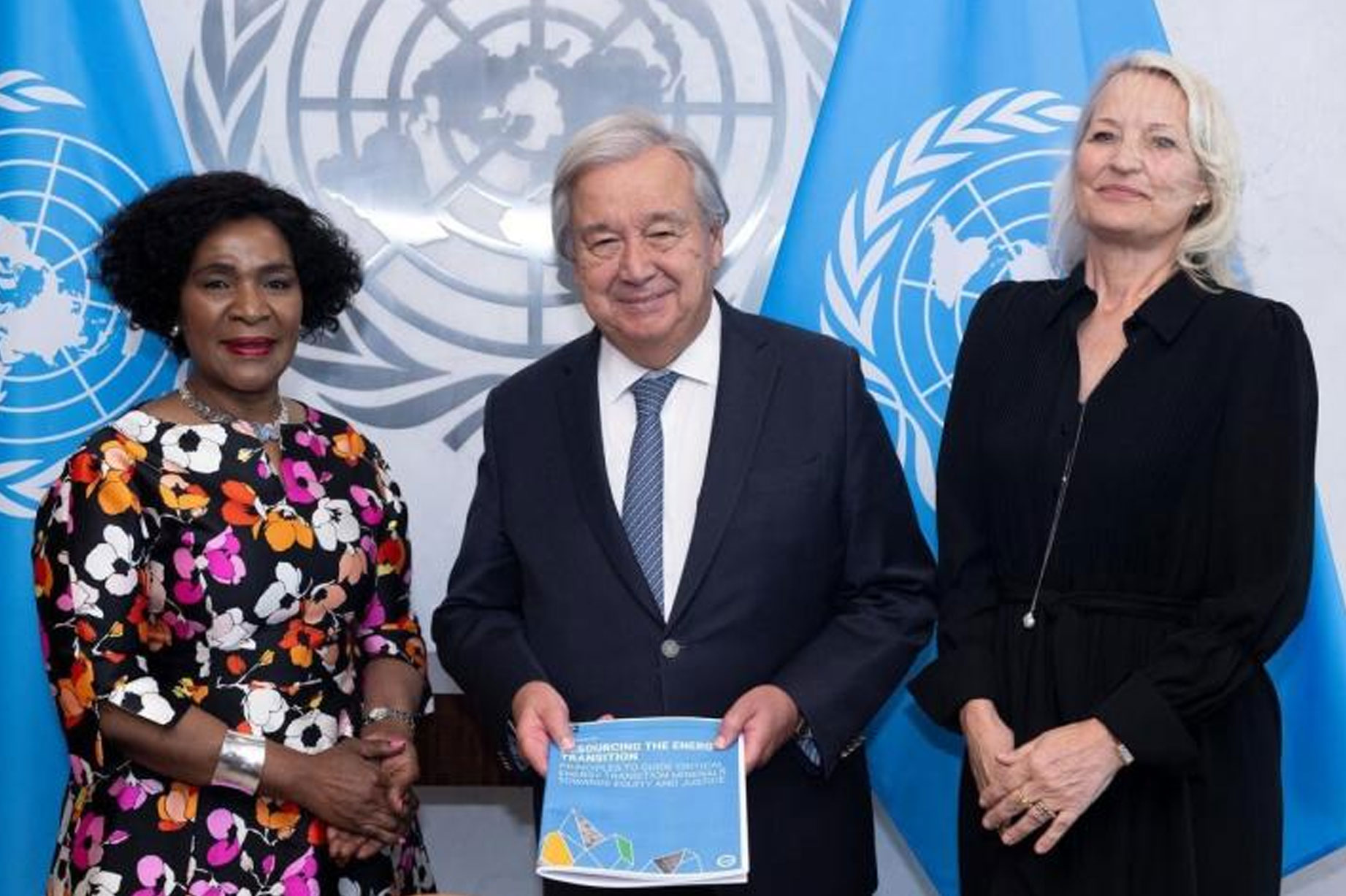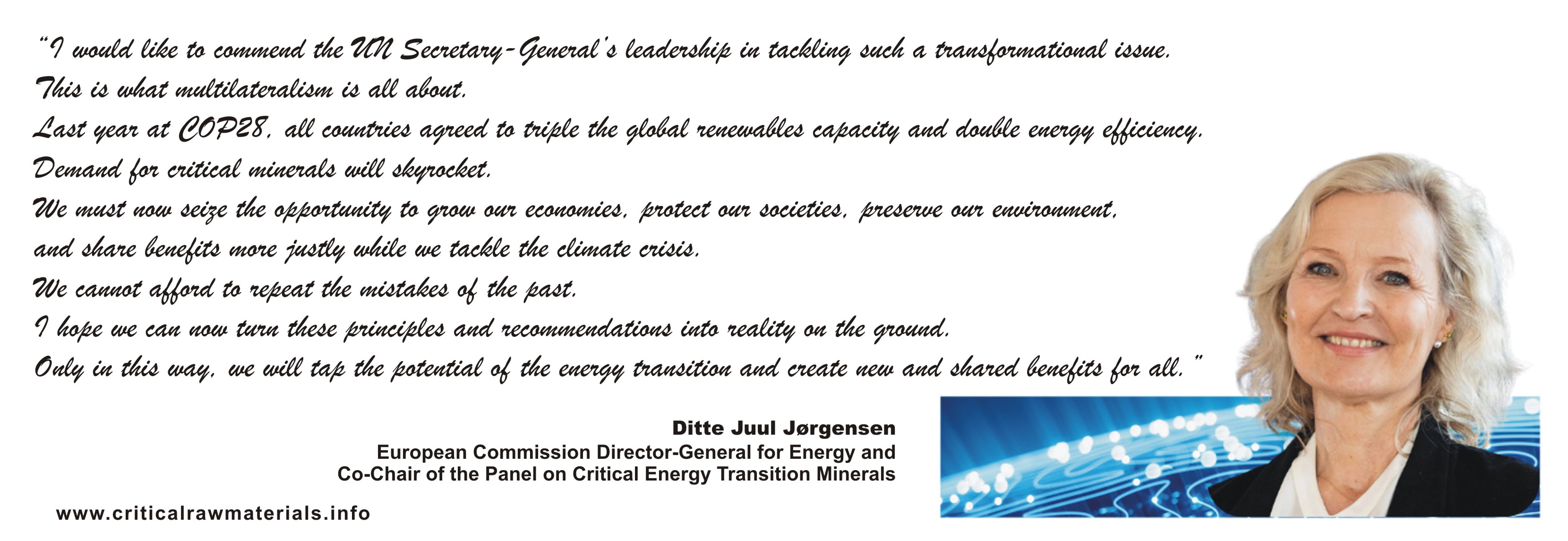
The Critical Raw Materials and UN Panel
UN Panel on Critical Energy Transition Minerals unveils Actions and Principles for Justice and Equity
Today, United Nations Secretary-General António Guterres unveiled the outcomes of his UN Panel on Critical Energy Transition Minerals, co-chaired by Ditte Juul Jørgensen, Director-General for Energy of the European Commission and Ambassador Nozipho Joyce Mxakato-Diseko of South Africa. The Panel has developed a series of Guiding Principles and Actionable Recommendations to foster trust, justice, equity, and diversified supply chains, and to steer green investments across the critical energy transition minerals value chain. Such minerals are vital for the industrial manufacturing of clean energy technologies, including wind turbines, solar panels, batteries, and other clean tech products, which are crucial for the EU’s energy transition, energy security, quality jobs, and economic competitiveness.
At COP28, the world agreed on an EU-led initiative to triple the global renewables capacity and double energy efficiency measures by 2030. Successfully achieving these objectives will skyrocket the demand for critical energy transition minerals.
This increase is accompanied by significant risks, including environmental degradation, human rights abuses, crime, and conflicts. However, it also creates new opportunities, including a pathway to shared prosperity, economic transformations, and the promise of energy security for all, especially when following the guardrails outlined in the report – chief of which are leaving no-one behind and safeguarding our fragile planet for future generations.
In terms of multilateral diplomacy, as co-chair, the Commission effectively facilitated a global dialogue between expert representatives nominated by rich-resources countries and major developed and developing economies as well as international organisations, industry, and civil society. This was a true multi-stakeholder process – and this can also be seen in the outcomes, which reflects the convergence, cohesion, and consensus of the views from around the table.
In terms of competitiveness and resilience, promoting the Principles and implementing the Actions will help build resilient, diversified, and decentralised value chains of critical minerals to power the EU’s energy transition as well as the economies of partner countries with affordable minerals, extracted and processed responsibly, with a specific focus put on circularity. By elevating environmental, social, and governance standards globally, the actions will elevate the level the playing field, creating a race to the top, and unlocking more opportunities for economic actors that value high social and environmental standards, such as EU companies, to strengthen their competitiveness in a market that increasingly values sustainability. In turn, this will help the EU diversify and de-risk its supply chains and generate long-term economic prosperity.

First, the Panel has developed seven Guiding Principles drawing from existing international norms, commitments, and legal obligations:
- Principle 1. Human rights must be at the core of all mineral value chains.
- Principle 2. The integrity of the planet, its environment and biodiversity must be safeguarded.
- Principle 3. Justice and equity must underpin mineral value chains.
- Principle 4. Development must be fostered through benefit sharing, value addition and economic diversification.
- Principle 5. Investments, finance and trade must be responsible and fair.
- Principle 6. Transparency, accountability and anti-corruption measures are necessary to ensure good governance.
- Principle 7. Multilateral and international cooperation must underpin global action and promote peace and security.
Secondly, to operationalise and support the implementation of the Principles, the Panel put forward a series of Actionable Recommendations. The Panel proposed:
- A High-Level Expert Advisory Group to accelerate greater benefit-sharing, value addition and economic diversification in critical energy transition minerals value chains as well as responsible and fair trade, investment, finance, and taxation.
- A global traceability, transparency and accountability framework along the entire mineral value chain – from mining to recycling – to strengthen due diligence, facilitate corporate accountability and build a global market for critical energy transition minerals, though the framework should not be used as a unilateral trade barrier.
- A Global Mining Legacy Fund to build trust and address legacy issues as a result of derelict, ownerless or abandoned mines, and strengthen financial assurance mechanisms for mine closure and rehabilitation.
- An initiative that empowers artisanal and small-scale miners to become agents of transformation to foster development, environmental stewardship and human rights.
- Equitable targets and timelines for the implementation of material efficiency and circularity approaches across the entire life cycle of critical energy transition minerals.
Next steps
Now that the Principles and Actions have been presented, the UN Secretary-General will take this initiative forward, including by feeding into various multilateral decision-making processes such as COP29 and mobilising the United Nations and other relevant actors.
The European Commission stands ready to support this initiative and calls on all actors to do their part to implement the Guiding Principles and the Actionable Recommendations.
Background
This UN Panel was established in response to a proposal by resource-rich developing countries experiencing issues along the minerals value chain made in the margins of COP28.
The Panel convened virtually, and in person in Copenhagen (8-9 July) and Nairobi (20-21 August). This was complemented by extensive multistakeholder consultations, which included countries and organisations not represented on the Panel.
EU Members States were consistently involved and consulted and throughout the process.

Tag
menu